03:10
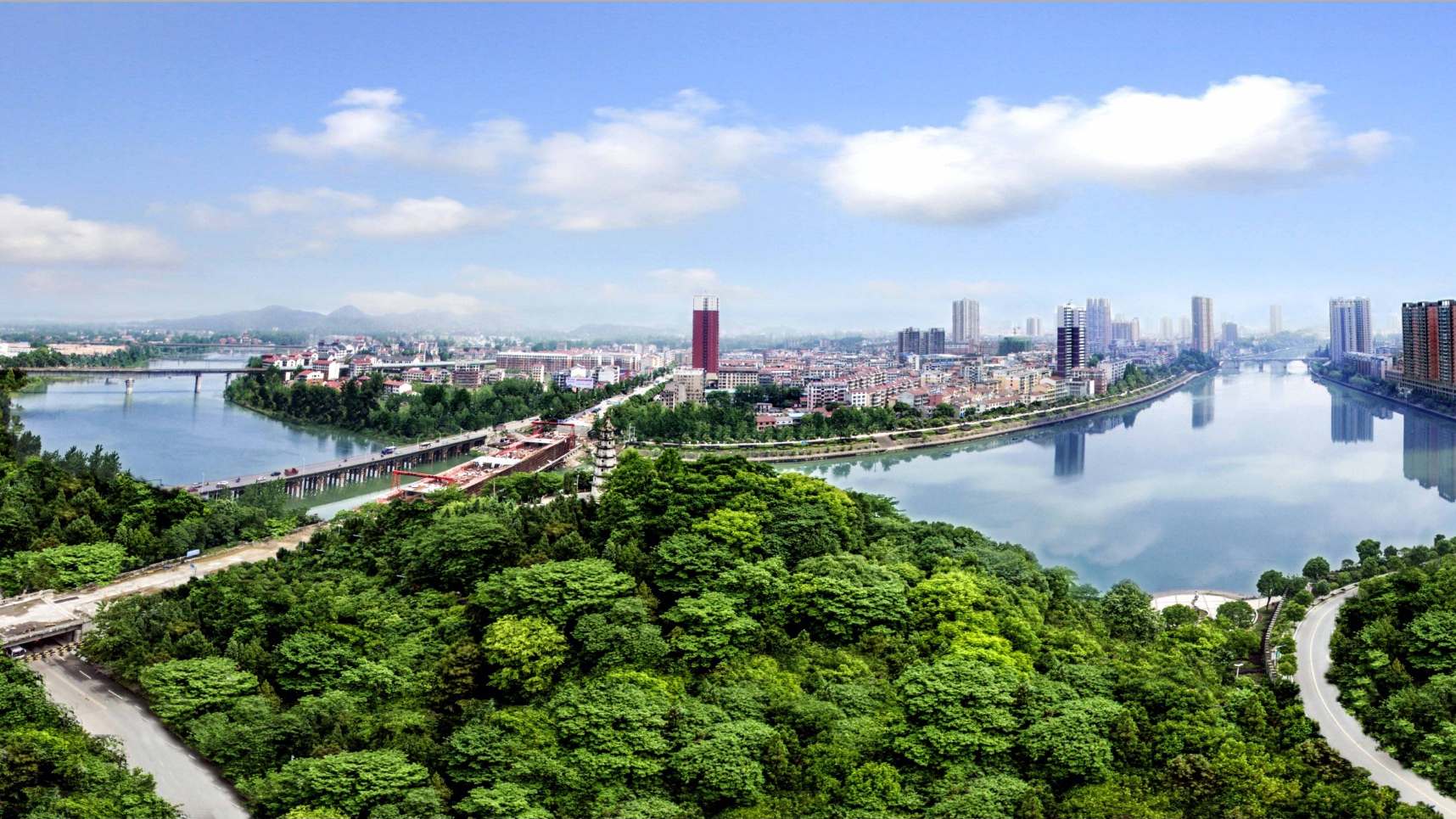
On the sixth day of "Real Time China," the CGTN caravan passes through the city of Chibi at the southern end of central China's Hubei Province.
One of the teams visited the most famous place here, the Chibi Ancient Battlefield, trying to find out why the city is named after the ancient battlefield and what kind of development it has gone through.
Chibi is a small county-level city. It's clean, neat and modern, but people usually know it through its name Chibi, or Red Cliff, which stems from a great battle fought in 208 AD that became the archetype of a small military force triumphing over a much larger one.
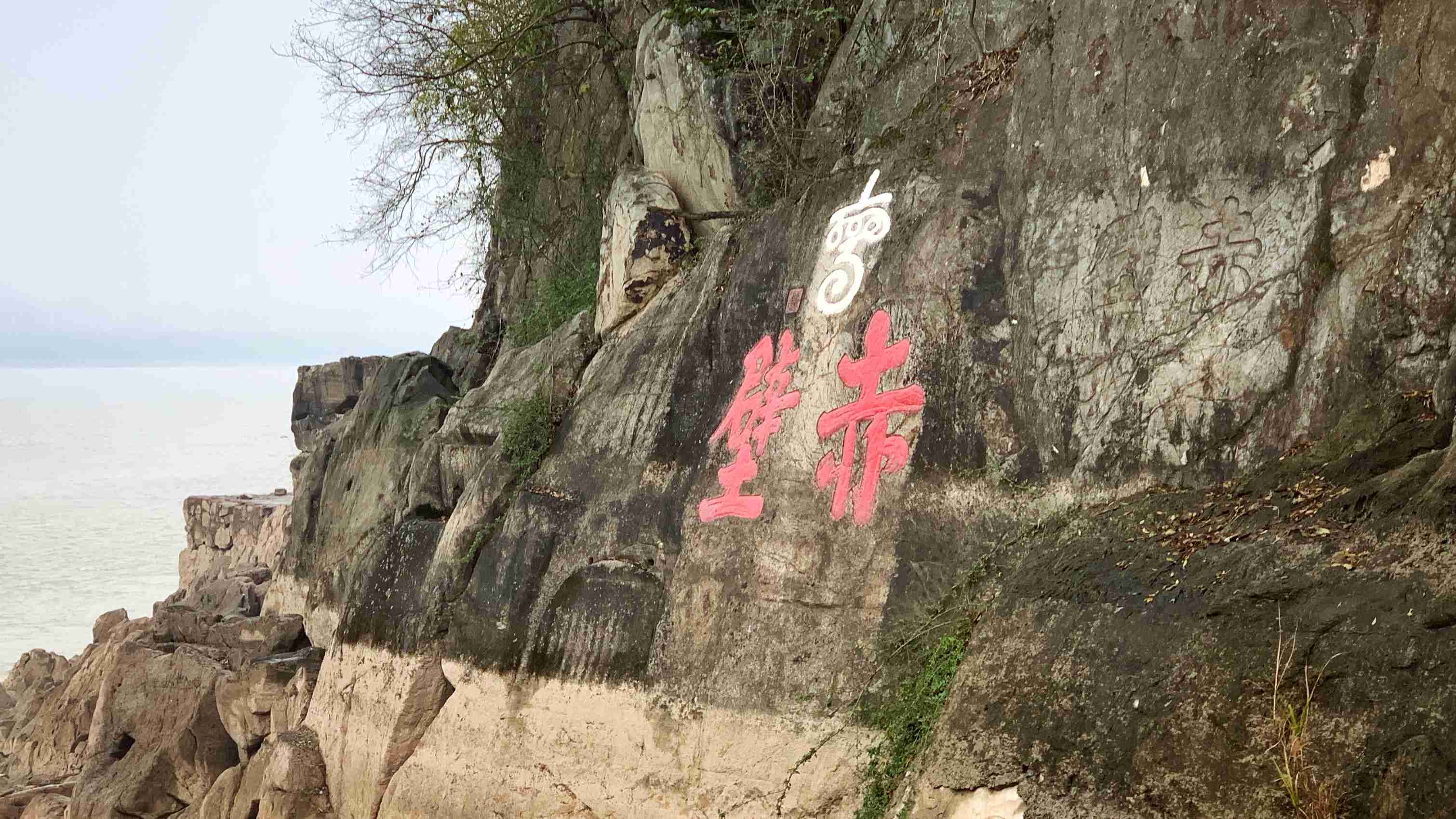
Two red Chinese characters "Chi" & "Bi" (from right to left) are engraved on the rock on the south bank of the Chibi section of the Yangtze River. Both characters together mean "red cliff." /CGTN Photo
Two red Chinese characters "Chi" & "Bi" (from right to left) are engraved on the rock on the south bank of the Chibi section of the Yangtze River. Both characters together mean "red cliff." /CGTN Photo
Back then, the northern warlord Cao Cao led his 500,000 troops southward and occupied a large territory, but he met resistance in Chibi from the numerically inferior but allied forces of southern warlords Sun Quan and Liu Bei.
Both sides had a long standoff that winter along the Chibi section of the Yangtze River. In the end, Cao Cao took the mistaken advice of chaining together all his battleships in the Yangtze River to help his soldiers overcome seasickness.
One night, his warships were attacked and burned. Only a few escaped, including himself.
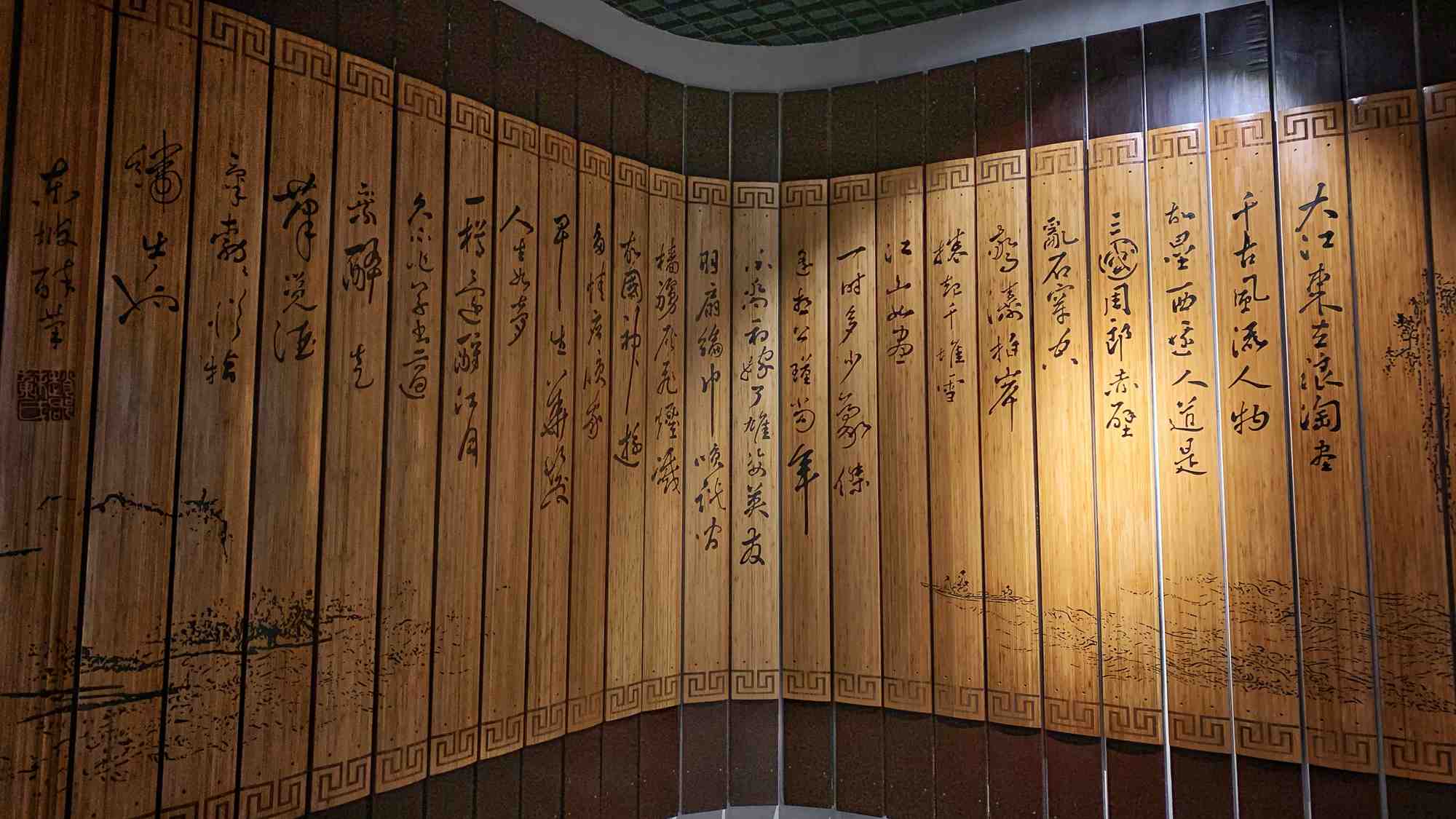
Calligraphy of an ancient Chinese poem, a reflection on the fate of the heroes during China's Three-Kingdoms Period (220-280 AD). /CGTN Photo
Calligraphy of an ancient Chinese poem, a reflection on the fate of the heroes during China's Three-Kingdoms Period (220-280 AD). /CGTN Photo
Since that time, the story and people in the battle and the later Three Kingdoms Period (220-280 AD) have been made into literary works and thus remembered by most Chinese and people of neighboring countries.
Over 1,800 years have passed. The ancient battlefield has long become the core of the culture and the history of the city.
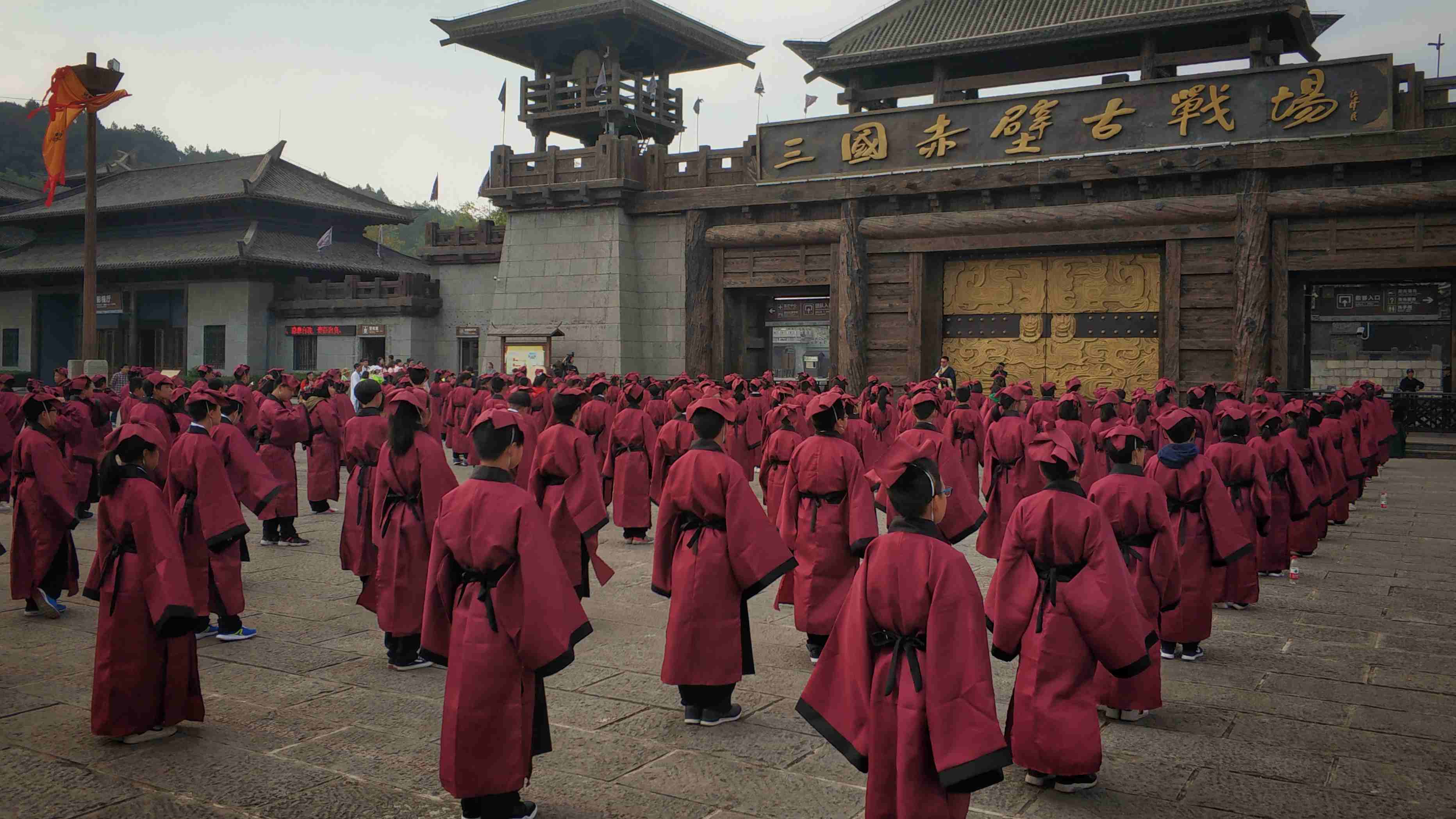
Every year, students from around the country come to Chibi to learn about its history. /CGTN Photo
Every year, students from around the country come to Chibi to learn about its history. /CGTN Photo
Every year, hundreds of thousands of people, including students, come here to remember the history and pray for long-lasting peace.
When standing on the south bank of Yangtze River on the Chibi ancient battlefield, we can get a view of the broad river flowing eastward, as well as a scene of city's development.
A nearby ferry is busy transmitting trucks for infrastructure construction in this part of the city.
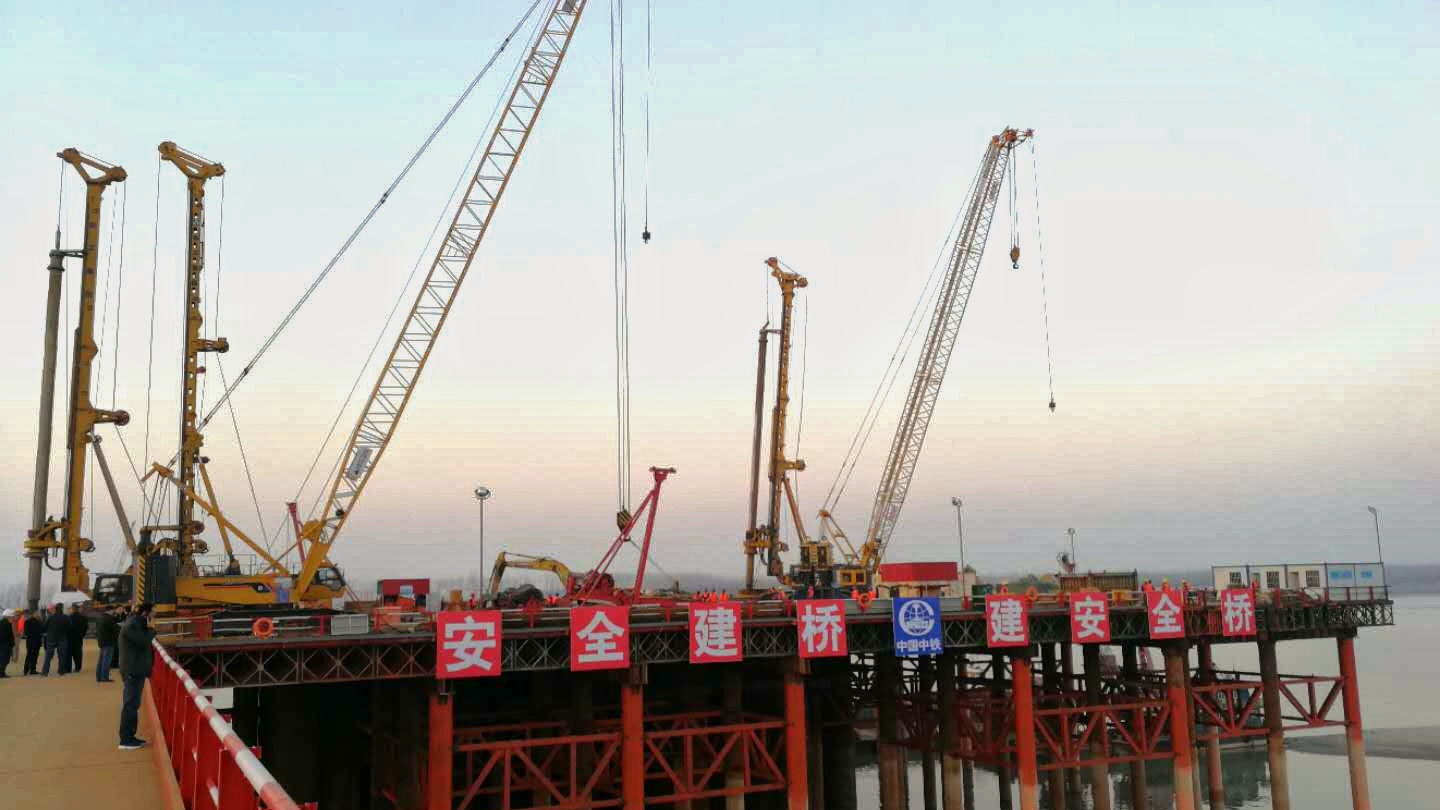
A new bridge crossing the Yangtze River in Chibi is being built. It has investments of more than 3.2 billion yuan, or 470 million U.S. dollars. /CGTN Photo
A new bridge crossing the Yangtze River in Chibi is being built. It has investments of more than 3.2 billion yuan, or 470 million U.S. dollars. /CGTN Photo
In the distance in the west, a new bridge crossing the river is being built to better link the city with other parts of the country, as Chibi is geographically the South Gate of Hubei Province, and has been a traffic hub among Hubei and neighboring provinces like Hunan and Jiangxi.
Several national highways cross the city.
These give a glimpse of how the city on one hand preserves its history and on the other tries to have better development.
Chibi has been an important source of transporting Chinese tea to Europe. Now this role is strengthened by better traffic conditions.
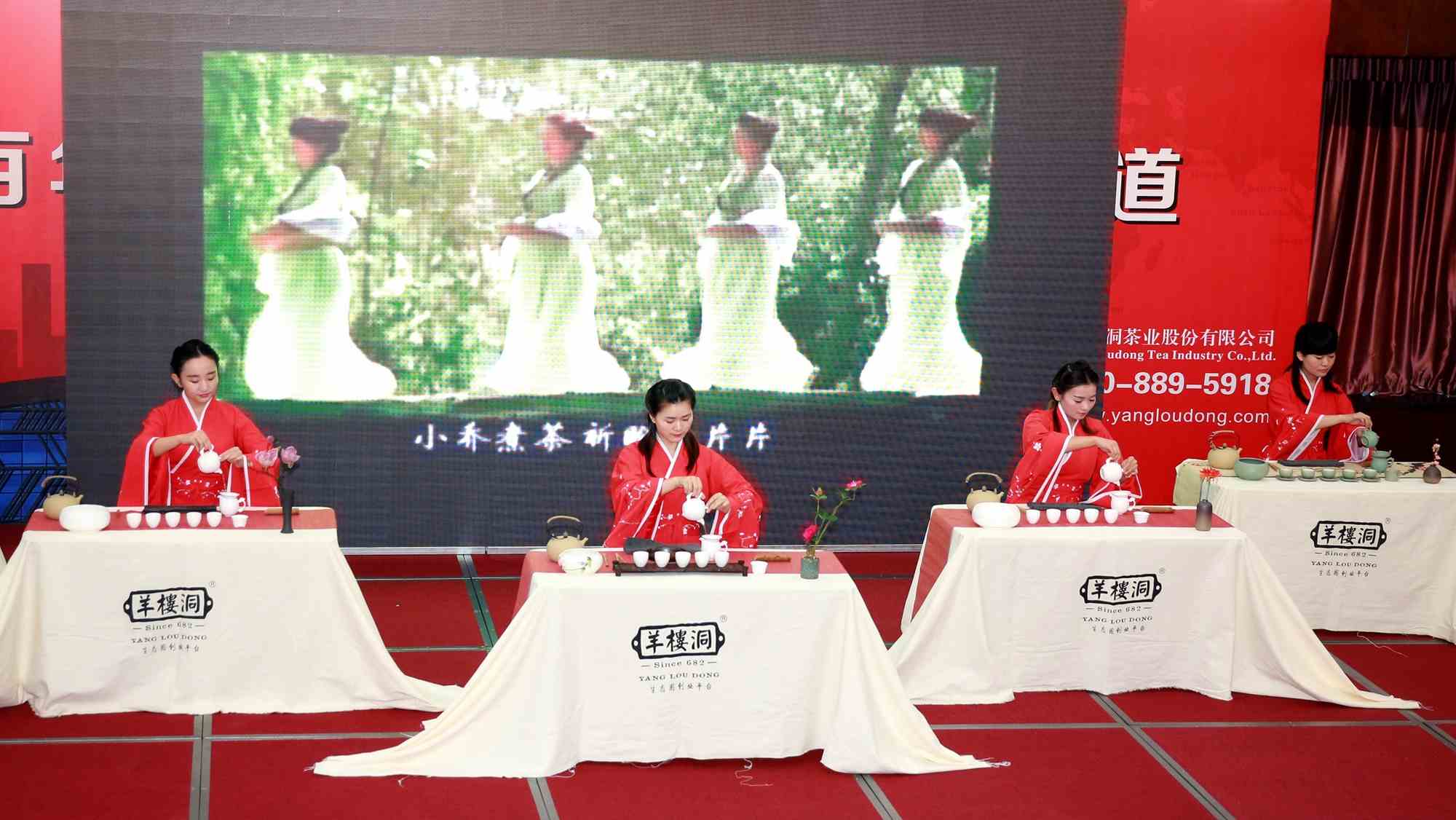
The city of Chibi has been an important source of exporting tea to Europe. It's now cultivating the traditional Chadao, or the art of serving tea to guests and friends. /CGTN Photo
The city of Chibi has been an important source of exporting tea to Europe. It's now cultivating the traditional Chadao, or the art of serving tea to guests and friends. /CGTN Photo
In the past 40 years, the city went through great changes while the entire country went through opening-up and economic development.
According to official figures, in 1978, Chibi's local GDP was 122 million yuan or over 17 million U.S. dollars, while this year it is expected to reach 42 billion yuan or 6 billion U.S. dollars.
Locals attribute such development to an open mind and diligence. And they try to make their industry more balanced, for local GDP is mainly driven by its tertiary sector, particularly tourism.
Now, they have introduced high-tech industries and ecology bases, hoping to further boost the city's economic development.







